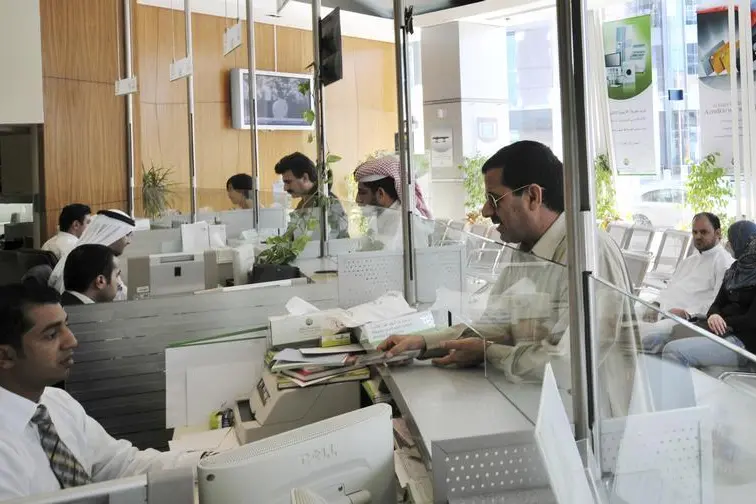PHOTO
16 August 2015
JEDDAH -- Islamic banks in the Gulf face a gradually weakening operating outlook in 2015-2016, largely due to declining oil revenues, a report titled "Gulf-Based Islamic Banks Grapple With Weakening Regional Economies" by Standard & Poor's Ratings Services said. However, "we believe investor demand for Shariah-compliant products and supportive government actions will enable Islamic banks in the region to continue to grow and gradually increase their market share. After several years of improving returns and strong growth we expect a gradual change in the operating conditions for Islamic banks in the Gulf in 2015-2016, largely as a result of the weakness in oil prices and its effects on regional economies," said Standard & Poor's credit analyst Timucin Engin.
"Although our credit growth projections remain largely unchanged for 2015, we believe deposit growth will slow somewhat due to relatively weaker liquidity conditions and asset quality will gradually deteriorate in line with the economic slowdown."
"These factors will in our view gradually increase credit losses at Islamic banks in 2015, leading to lower net income growth than in 2014," added Standard & Poor's credit analyst Suha Urgan. "Given that Islamic banks generally operate with healthy funding and capital positions, we expect them to adopt a conservative stance in 2015 and maintain strong levels of capital while looking to further diversify their funding base."
The report focused on pure-play commercial Islamic banks and does not take into account the Islamic assets of conventional banks in the Gulf Cooperation Council.
"We also exclude Islamic investment banks whose revenues are primarily driven by capital markets and investment-related activities. Our research shows that GCC-based Islamic banks increased their balance sheets by an average of 15.2% between 2009 and 2014, while their conventional peers registered an 8.8% increase. In 2014, Gulf-based Islamic banks grew at a rate of 12.6%, against 9.6% for conventional banks.
According to the report, the two most important factors influencing the Islamic banks' faster growth are an increasing demand for both retail and corporate Shariah-compliant banking products and government initiatives designed to support Islamic finance.
Gulf-based Islamic banks ended 2014 with healthy balance-sheet growth and improving bottom line results, though the report expected 2015-2016 to be relatively less benign for Gulf Islamic banks in general, although we still believe the long-term supportive factors for these banks remain unchanged.
Qatar, Saudi Arabia, and the United Arab Emirates continue to offer the strongest growth opportunities in the GCC region, the report noted.
JEDDAH -- Islamic banks in the Gulf face a gradually weakening operating outlook in 2015-2016, largely due to declining oil revenues, a report titled "Gulf-Based Islamic Banks Grapple With Weakening Regional Economies" by Standard & Poor's Ratings Services said. However, "we believe investor demand for Shariah-compliant products and supportive government actions will enable Islamic banks in the region to continue to grow and gradually increase their market share. After several years of improving returns and strong growth we expect a gradual change in the operating conditions for Islamic banks in the Gulf in 2015-2016, largely as a result of the weakness in oil prices and its effects on regional economies," said Standard & Poor's credit analyst Timucin Engin.
"Although our credit growth projections remain largely unchanged for 2015, we believe deposit growth will slow somewhat due to relatively weaker liquidity conditions and asset quality will gradually deteriorate in line with the economic slowdown."
"These factors will in our view gradually increase credit losses at Islamic banks in 2015, leading to lower net income growth than in 2014," added Standard & Poor's credit analyst Suha Urgan. "Given that Islamic banks generally operate with healthy funding and capital positions, we expect them to adopt a conservative stance in 2015 and maintain strong levels of capital while looking to further diversify their funding base."
The report focused on pure-play commercial Islamic banks and does not take into account the Islamic assets of conventional banks in the Gulf Cooperation Council.
"We also exclude Islamic investment banks whose revenues are primarily driven by capital markets and investment-related activities. Our research shows that GCC-based Islamic banks increased their balance sheets by an average of 15.2% between 2009 and 2014, while their conventional peers registered an 8.8% increase. In 2014, Gulf-based Islamic banks grew at a rate of 12.6%, against 9.6% for conventional banks.
According to the report, the two most important factors influencing the Islamic banks' faster growth are an increasing demand for both retail and corporate Shariah-compliant banking products and government initiatives designed to support Islamic finance.
Gulf-based Islamic banks ended 2014 with healthy balance-sheet growth and improving bottom line results, though the report expected 2015-2016 to be relatively less benign for Gulf Islamic banks in general, although we still believe the long-term supportive factors for these banks remain unchanged.
Qatar, Saudi Arabia, and the United Arab Emirates continue to offer the strongest growth opportunities in the GCC region, the report noted.
© The Saudi Gazette 2015





















